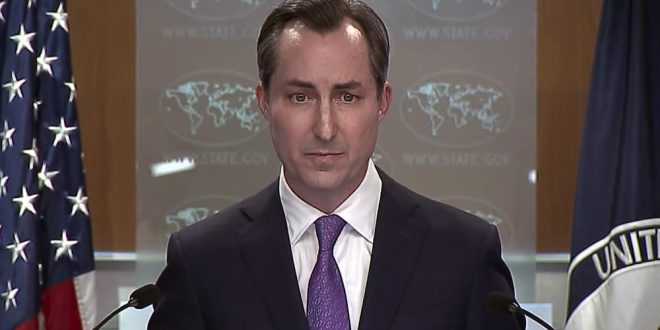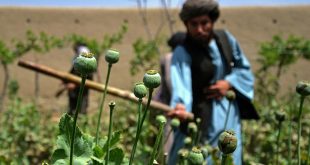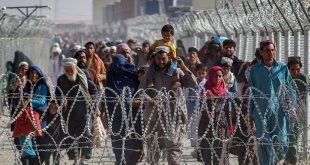AT Kabul: The US State Department spokesperson, Matthew Miller, conveyed on Tuesday that Washington maintains close and continual communication with Islamabad concerning the approximately 25,000 Afghans in Pakistan awaiting approval for their US visas.
Miller stated, “We are in close and constant communication with the Government of Pakistan regarding the safety of individuals in the U.S. visa pipeline. It is our intention to collaborate in good faith with the Government of Pakistan to address any concerns it may have. Our primary concern is the safety of vulnerable and at-risk individuals.” He continued, emphasizing the mutual interest of both countries in ensuring the secure and efficient resettlement of refugees and asylum seekers.
Miller expressed solidarity with international partners, urging all nations, including Pakistan, to uphold their respective obligations in the treatment of refugees and asylum seekers. He strongly encouraged Afghanistan’s neighboring countries to facilitate the entry of Afghans seeking international protection and to coordinate with humanitarian organizations for providing necessary assistance. Simultaneously, the International Organization for Migration (IOM) and humanitarian partners are actively delivering critical aid at border crossing points between Pakistan and Afghanistan, responding to the large-scale return of forcibly displaced Afghans.
According to the IOM, nearly 375,000 Afghans have departed Pakistan in the past two months, predominantly through the Torkham and Spin Boldak border crossings. The IOM highlighted a significant surge in border crossings from 200 daily to 17,000 following Pakistan’s implementation of the Illegal Foreigners’ Repatriation Plan, which set a November 1 deadline for the “voluntary return” of all undocumented Afghans in Pakistan to their country of origin.
The IOM-led border consortium is actively engaged in providing critical aid, encompassing shelter, water, sanitation, essential household items, healthcare, protection and nutrition services. Additionally, cash assistance is being extended to cover basic needs, transportation, and food for those affected by the repatriation initiative.
 Afghanistan Times
Afghanistan Times




